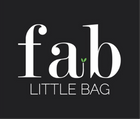
HOW GREEN ARE MY PERIODS – AND HOW CAN I TELL? BY GEORGINA CLOSE-SMITH
As we all become increasingly conscious of our environmental impact, it’s no surprise that many of us are keen to make our periods as eco-friendly as possible. After all, on average, a woman uses more than 11,00 disposable menstrual products in a lifetime. .That’s a lot of pads and tampons. That can also be a lot of plastic. But, there’s good news! There are lots of sustainable period products available which help you to cut back on single-use plastics. However, finding truly eco-friendly period products is becoming a bit of a minefield. As companies catch wind of our attempts to have greener periods, many have begun to greenwash their products.
WHAT IS GREENWASHING, AND HOW CAN I SPOT IT?
Greenwashing is when companies mislead consumers into thinking that their products or business are greener than they actually are.
If you find buying sanitary products to be sometimes an overwhelming experience, you’re not alone, as the sheer amount of choice can certainly be daunting. Luckily, we’ve put together some handy tips on how to sort the ‘green’ from the ‘greenwashed’!
First of all, check the ingredients! If they’re not even mentioned on the packaging, this isn’t a good sign. Similarly, some products will only list a handful of the ingredients, cherry-picking those that fit their ‘green’ image best. A truly sustainable product will be open about all the materials used in the products and won’t try to use obscure language to cover things up.
Secondly, look out for Buzzwords! Of course, terms like ‘green’, ‘sustainable’ or ‘eco-friendly’ are usually a good thing. However, when you see these words emblazoned on packaging, it is often worth looking into it a little bit more. For example, if a product claims to be made of ‘recycled materials’, the percentage of packaging actually made from recycled materials can be very low.
‘PLANT-BASED’, ‘BIODEGRADABLE’ AND ‘COMPOSTABLE’ – WHAT DO THEY MEAN?
Recent research by Greenpeace Laboratories revealed that many tampon applicators advertised as ‘plant-based plastic’ were in fact made of the same material as oil-based applicators (polyethylene). It’s also important to be aware that only 20% of the product needs to come from plants in order to warrant a ‘plant-based label’. For example, Tampax Cotton Protection claims to have a ‘plant-based’ applicator, but it is actually only 90% plant-based. Nor is ‘plant-based’ the same thing as ‘biodegradable’ or ‘compostable’ – not least because the label often doesn’t apply to the whole product anyway!
What does Biodegradable actually mean? Is it the same as Compostable?
So what about products that claim to be ‘biodegradable’? Unfortunately, these options may not be as green as they initially seem either. Organic brands are particularly guilty of declaring that their products are “biodegradable“ or “compostable”. Whilst it is technically possible for some tampons and perhaps some organic brands of pads to decompose over time, this doesn’t mean that they’ll just break down in your bin at home, or in landfills. Instead, they require specific industrial facilities, of which there are only 18 in the UK. But here is the killer fact: Tampons and pads will never end up in any industrial composting site. Period products – regardless of their ‘biodegradable’ or ‘plant-based plastic’ credentials – only end up in two places: in landfill or incinerated. In both cases, being biodegradable or compostable is a complete red herring as anaerobic conditions in landfill mean that things take decades to decompose.
WHAT ARE SOME GENUINELY SUSTAINABLE ALTERNATIVES?Mooncups, period pants, reusable tampon applicators and washable pads are all a great place to start in your quest to have a greener period. Giving all or some of these a try is to be encouraged. However, brilliant as these all may be, the reality is that single-use tampons and pads are still used by the majority of us. This can be for any number of economic, cultural, physical or practical reasons. Therefore, disposal remains one of the biggest barriers to an eco-friendly period.
HOW DO I BEST DISPOSE OF MY TAMPONS AND PADS?In the UK alone, 2.5 million tampons and 1.4 million pads are flushed down the toilet each day, and up to to 47% of all sanitary products used each year are flushed away. FabLittleBag is on a mission to convert flushers to binners, and in doing so reduce the amount of period waste polluting the rivers and oceans. Sanitary waste is the FIFTH largest polluter of single-use plastic in our oceans, and binning is the way to prevent this – not flushing! These sanitary bags are super easy to use: simply pop the used tampon or rolled up pad into the bag, seal it shut, and dispose of it easily and with confidence, wherever you are, in any type of bin. The fact they seal shut is extra fab, as this prevents any odours escaping, whilst you keep it on you until you find somewhere suitable to dispose of it. Open – in – seal – bin!
If you’re able to use mooncups and are out and about, FabLittleBags are also great for storing the clean one and then keeping the used one in a sealed bag until you are home to wash it. If you’re still using pads and tampons, make sure you’re a binner not a flusher and shop FabLittleBags today! And why not take this short quiz to find out how green your periods are, and what you can do to improve: Period Quiz – FabLittleBag HQ.
